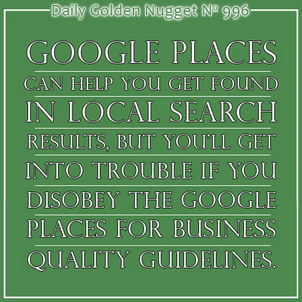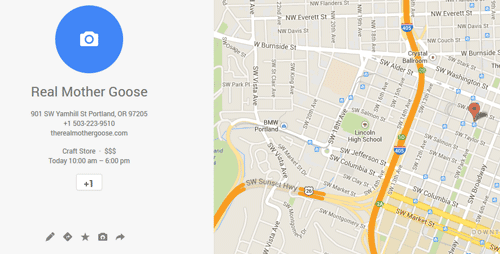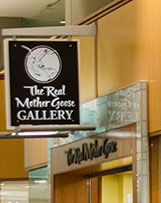
Google Places can help you get found in local search results, but you'll get into trouble if you disobey the Google Places for Business quality guidelines.
Over the years, I've seen many jewelry stores using a lot of tricks to place higher in Google's ranking results. Perhaps the most common trick is changing your business name to include specific keywords.
Using the jewelry store name Perosi Jewelers, located in Totowa Borough, NJ, here are some examples of what some jewelers have done:
* Perosi Jewelers Engagement Rings
* Perosi's Best Totowa Jeweler
* Best Engagement Rings in Totowa - Perosi Jewelers
* Perosi Jewelers Totowa
Apparently Google has realized that business name modifications like this do affect the search results, so they now classify these as manipulative and this is a violation of the Places for Business quality guidelines that you can find here:
https://support.google.com/business/answer/3038177
They have a specific section with a few examples of what you should and should not do with your business name, and the 4 examples above are clear violations.
On the other hand, the guidelines do say you can include a single "descriptor" to help customers locate your business. With this in mind, I recently helped a multi-location customer of mine rework each of their Places listings.
Customers search for their store name were often confused by all the different locations throughout their state, and many times they were confusing to look at on a map. In fact, recently in my home town in New Jersey I did a search for "jewelry stores" and saw a list of 3 identical named jewelry stores within 10 miles of my house. I also felt that was very confusing.
In order to combat the confusion of the multiple store locations, the descriptor "of Town Name" was added to each listing. In the example of Perosi Jewelers above, the name would have been changed to "Perosi Jewelers of Totowa."
This technique worked for this multi-location store, but a single location jewelry store would fall into the gray area of Google's quality guidelines.
The quality guidelines also hint at the idea that you could include a descriptor to help your customers understand what type of business you are. This gives some potential for retail stores that have business names that don't specifically include the word jewelry.
For example, several months ago I review The Real Mother Goose gallery in this Friday website review. As of today their Google Maps listing looks like this:

I didn't give them a really good review 8 months ago, and now I see they are also a perfect example for today. The "map" in that image above shows you that they have not claimed their business listing on Google+ or Google Places, thereby leaving all their online information to complete chance.
The Google Maps listing says they are a "Craft Store," but the Real Mother Goose is more than that. They certainly would benefit from a descriptor in their listing name; perhaps they should simply add the word "Gallery" since that's what's on their store sign as you see here:

(photo taken from therealmothergoose.com for demonstration purposes)
If they were exclusively a jewelry store, I would have suggested the "Real Mother Goose Jewelry" as a listing name.
Let me move now to a different, but related topic about store listings in Google Places for Business. As I pointed out above, there are several jewelry stores that have never claimed their business in Google Maps or Places. I assume you are not one of them since you are reading this...
In an effort to help promote the store, and their brand, I've noticed several jewelry designers and jewelry manufacturers that created their own Google Places account using a jeweler's address.
For example, suppose that Perosi Jewelers sold the (fictitious) 4Blair Designs line of jewelry. 4Blair Designs offered to help with the online marketing for my jewelry store, so they created a Google Place called "4Blair Designs at Perosi Jewelers."
I've seen this exact situation, and on the surface it seems like a good idea, except it's against Google's quality guidelines. Here's what Google specifically says about it:
"You can't create Places listings for stores which you do not own, but which stock your products."
The consequences of going against Google Places for Business quality guidelines is that your listing will be disabled. They will disable your listing on Maps, in local search results, and on Google+. It's not worth the loss of business you'll experience when your account is disabled, so stay within their guidelines.








